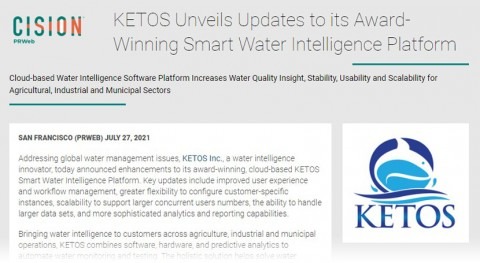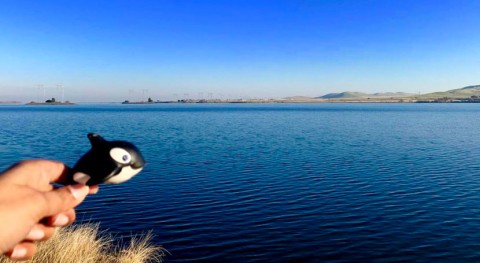This year the UN’s theme for International Women’s Day focuses on digital innovation and technology for gender equality. We are using this occasion to ask women professionals in the water industry about their experiences and their views on women’s participation in digital innovation and the opportunities it might bring to achieve gender parity.
Meena Sankaran, Founder and CEO of Ketos, believes in leveraging technology and building business models for challenges that bring about global change. She founded the company in 2015 to transform the water industry with the goal of making water safer and sustainable.
The UN’s theme for this year’s International Women’s Day focuses on innovation and technology for gender equality. To what extent are women participating in digital innovation in the water industry?
Women are actively participating in digital innovation in the water sector. However, the key question is, are they influencers or decision makers or only participants? How can they be empowered to become stakeholders? How can incentives and initiatives be created for girls at a young age, to women across all stages of their career, so they can be actively involved in innovation on an ongoing basis that doesn’t shunt their possibilities of growth?
A lot of intentional effort needs to be implemented for the younger generations to create excitement and interest in water vs. all the other sectors
If women had a low presence in STEM-related careers, their presence is even lower in ICTs. Do you think there is a risk that gender gaps will be perpetuated in the digital age?
A lot of intentional effort needs to be implemented for the younger generations to create excitement and interest in water vs. all the other sectors that are drawing so much more attention for future generations. This has to be a key priority in both the public and private sectors. All of the youth interested in climate and environmental issues are still not leaning towards water amongst the plethora of topics to solve.

The digital age is changing the way we work and technology provides greater flexibility in terms of forms of employment. Do you expect this will have an impact on gender parity?
The ability for women to work from home and also the realization and awareness of men as to what it takes to run a household have been front and center. This is definitely forcing a shared workload and also a stronger perspective and potential to support women better in their effort to balance work life with the demanding chores of a home.
How can digital innovation be leveraged to address some of the specific challenges facing women, such as access to mentorship opportunities?
Several organizations that are uplifting women into board seats like Athena Alliance, HimforHer and How women lead, are all examples of bringing the professional community to learn, grow and continually adapt to the demands of the ecosystem and leadership as a whole.
Have you seen any specific examples of how technology has helped to level the playing field for women in the water sector?
One example is having a video framework of Zoom, Teams and others, which have allowed women to not be judged about being pregnant as one more factor in fundraising, as investors can then review their decision-making purely based on the facts shared with them. This is certainly a technology that has helped women founders in general water or any other sector.












